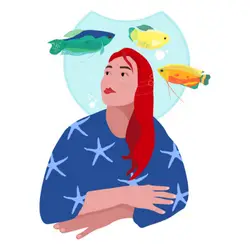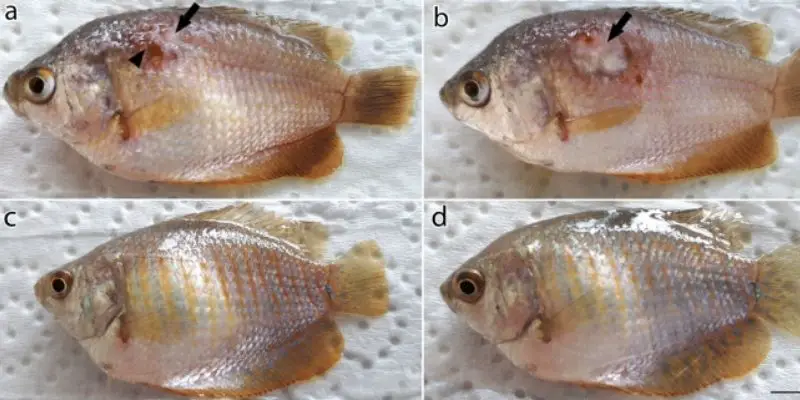It can be so heartbreaking when one of your fish dies suddenly in your aquarium. Sometimes it’s difficult to determine the cause of death, but there are a few things you can do to help save dying dwarf gourami.
By following these simple steps, you may be able to revive your little friend and get him (or her) back swimming happily in your tank again. Keep reading for more information!
How to Save a Dying Dwarf Gourami?
Be gentle.
Dwarf gouramis (and most other fish) do not like to be handled and can easily be injured if they’re dropped or mishandled in any way. If the fish is still alive, but very weak, this could potentially lead to more problems that you may not be able to treat successfully.
Know your enemy.
If you don’t know what killed your fish, you won’t be able to treat the problem effectively and it may happen again in the future. Be sure that nothing in your tank is affecting the water chemistry or temperature.
Take a sample of the water to your local pet store and ask them to test it for you. The store employees will be able to help you find out what’s wrong and how to fix it.
Give him some water.
Dwarf gouramis are very sensitive fish, so I recommend using only treated tap water, or reverse osmosis (RO) water. Chlorine can kill them just as easily as it can kill other types of fish, so make sure the water has been treated properly before putting it in your tank.
If you can’t find any type of dechlorinator, use tap water that has already been allowed to sit for 24 hours. This will allow most of the chlorine time to dissipate. The important thing is that the water is at room temperature.
Chilling the water in your freezer can slow the fish’s metabolism, making it more difficult for him to recover.
If you’re able to treat some tap water with a dechlorinator of your choice, use one that removes chloramines and ammonia as well, just to be safe. You can usually find this information on the label or packaging.
Dwarf gouramis are also sensitive to nitrites and nitrates. Test your tank water frequently for both of these, and if they’re high, do a water change immediately. If you don’t know how much water to remove from your tank, take about 25% of the total volume at a time.
Increase the temperature.
Dwarf gouramis prefer warm water, so a higher temperature can help them recover more quickly. Raise your tank’s temperature to 82 degrees Fahrenheit if it isn’t already there.
You will need a good quality heater that is designed for tropical fish and a thermometer. Be sure to keep an eye on the temperature and make sure it doesn’t get too high, which could also be harmful to your fish.
Watch him carefully.
Look for any signs of improvement or change in condition. If you notice that he is breathing more quickly than normal, his color has improved (less pale), or he’s swimming more actively than before, contact your local pet store and try to get some live aquarium plants to put in the tank.
Live plants should help give your sick fish plenty of oxygen and also help keep the water chemistry under control. This will be important for helping him recover completely.
It’s also a good idea to move your tank somewhere where there is less noise or activity, as this can stress out your fish as well.
Overall, just stay calm and keep a close eye on your sick fish. You never know what might happen!
Exercise patience.
Unfortunately, even if you do everything right there’s no guarantee that your fish will make it through this illness. It’s very difficult to successfully treat dying dwarf gouramis because they are so sensitive to changes in water chemistry.
Keep monitoring your tank’s water quality and do everything you can to keep it pristine. Be sure to give him plenty of time to recover, but don’t wait too long before doing something else. Dwarf gouramis are known for not wanting to eat when they’re stressed or sick, so new food items may not be well-received right away.
If you don’t see any improvement, or if your sick fish becomes more and more lethargic and stays at the bottom of the tank, it may be time to think about euthanasia. There’s no point in letting your little friend suffer if he is going to die no matter what you do; at least you can put him out of his misery.
If it were me, I’d try to keep him comfortable and wait for things to take their course, but do whatever makes the most sense for your situation.
If all goes well, your fish will recover completely with no lingering effects. You’ll be able to enjoy your little friend again soon!

